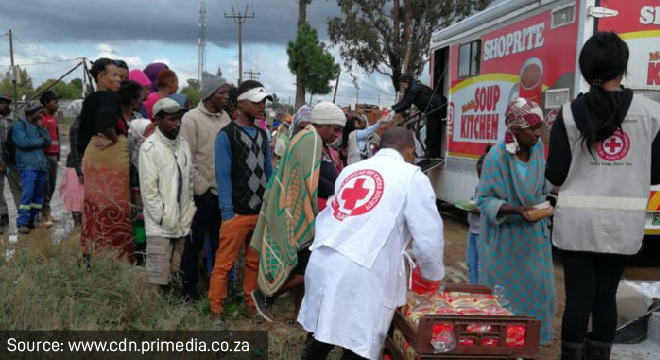The government’s call for assistance from the business world to get the economy going again is hopefully a welcome change in the view that private enterprise is in competition with it.
The perceived success of the president’s investment summits is a clear indication that businesses, both local and international, are willing to participate to restore the economy to its glory days under Trevor Manuel. It just makes good business sense, apart from addressing social issues, such as unemployment and poverty.
What about the financial services industry?
We have seen a number of initiatives where the industry responded to crises to alleviate the plight of customers and society.
Last year, Discovery Health announced it was extending its annual contribution increase of 7.9%, due on 1 January 2022, to 1 May. Last week, it extended this implementation date by another five months to 1 October 2022. This means that clients qualify for 2022 benefits at 2021 contributions for the first nine months of 2022. It also agreed to write off clients’ medical savings account debts that result from the postponement.
During the pandemic, most healthcare service providers took steps to alleviate the financial hardship suffered by members, including providing for scheme increases substantially below the medical inflation rate.
The short-term industry, in similar fashion, forsook a hard business approach when circumstances changed during the pandemic, including allowing premium holidays and adapting premiums in the light of people travelling less during the lockdown. More recently, it acted swiftly and efficiently as agents for Sasria to ensure that the economy got back on track after the riots. Sasria, as the insurer, was hopelessly understaffed and under-capitalised to handle such a crisis.
We also heard last week that PPS, a mutual society (as opposed to an insurance company), had adjusted its claims protocols to ensure maximum benefits for its members. The vast amounts paid out by insurers under life, disability, funeral benefit and related claims very clearly underscored just how important a role the financial services industry plays in times of crisis.
Going back even further, the preservation of billions of rands in unclaimed pension fund benefits, despite a slight hiccup when attempting to close dormant funds, bears testimony to the efficiency of the financial services industry.
Despite this, it is regulated to the extent that one becomes concerned about how long it will be able to fulfil this vital social function, often standing in for the government.
Freedom’s just another word for nothing left to lose
These lines from Kris Kristofferson’s famous song “Me and Bobby McGee” took on a new meaning for me when I read President Cyril Ramaphosa’s Freedom Day lament yesterday.
He said that the focus on relief to people in KwaZulu-Natal, following the devastating floods, had shifted to preventing theft, rather than relieving the plight of so many, particularly the poor, a point we made last week. Rumours of officials ensuring their own comfort before that of those they have sworn to look after and attempts to steal care packages intended for relief workers for party political purposes, really left a bitter taste.
The quest for political freedom must be replaced by a crusade for poverty relief. Anton Rupert’s famous saying that one cannot sleep well if your neighbour is hungry has now moved into our own homesteads.
There are many examples in the rest of the world that show that it can be done, provided the political will is there.
What to do?
Letting go of control paranoia and trusting private enterprise to contribute in a similar way in which the financial services industry has done over the years is an essential first step. Putting this to the test as far as addressing the electricity supply crisis is concerned would no doubt lead to a number of positive outcomes.
These words by Norman Mclean in A River Runs Through It reflect the current situation:
“Help,” he said, “is giving part of yourself to somebody who comes to accept it willingly and needs it badly.” “So it is,” he said, using an old homiletic transition, “that we can seldom help anybody. Either we don’t know what part to give or maybe we don’t like to give any part of ourselves. Then, more often than not, the part that is needed is not wanted. And even more often, we do not have the part that is needed.”
The signs are there that the barriers to co-operation are being lifted. May this come true sooner rather than later.




The Rupert quote that you reference is not his own. Its origin can be traced to the Muslim ‘Hadith’ written centuries ago:
“Ibn ‘Abbas informed Ibn az-Zubayr, “I heard the Prophet, may Allah bless him and grant him peace, say, ‘He is not a believer whose stomach is filled while his neighbor goes hungry.'”
SOURCE:
Reference : Al-Adab Al-Mufrad 112
In-book reference : Book 6, Hadith 0
English translation : Book 6, Hadith 112
Thanks, Quinten. Sharp-eyed as usual!
Hi Paul. I religiously read your pieces.
Q